
Wadi Rum: The Valley of the Moon
Wadi Rum, often called the Valley of the Moon, is a stunning desert landscape in southern Jordan. Known for its red sand dunes, dramatic rock formations, and ancient petroglyphs, Wadi Rum offers an otherworldly experience. This UNESCO World Heritage site is a favorite among adventurers, history buffs, and anyone looking to escape the hustle and bustle of city life. Visitors can explore Wadi Rum by Jeep, camel, or on foot. Each mode of transportation offers a unique perspective on the desert's vast, rugged beauty. The rock formations, such as the famous Seven Pillars of Wisdom, provide excellent climbing opportunities for both beginners and experienced climbers. For those interested in history, the petroglyphs and inscriptions scattered throughout the area offer a glimpse into the lives of the ancient peoples who once inhabited this land. At night, Wadi Rum transforms into a stargazer's paradise. The clear desert skies provide an unobstructed view of the Milky Way and countless constellations. Many visitors choose to stay in Bedouin camps, where they can enjoy traditional Jordanian hospitality, cuisine, and music. The combination of natural beauty, cultural richness, and adventure makes Wadi Rum a must-visit destination in Jordan.
Local tips in Wadi Rum
- Visit during spring or autumn for the most comfortable temperatures.
- Book a guided tour to explore hidden gems and learn about the area's history.
- Wear comfortable, sturdy shoes suitable for walking on sand and climbing rocks.
- Bring a good camera; the landscape is incredibly photogenic.
- Don't miss the chance to stay in a Bedouin camp for an authentic experience.
- Carry plenty of water and sunscreen to stay hydrated and protected from the sun.
Wadi Rum: The Valley of the Moon
Wadi Rum, often called the Valley of the Moon, is a stunning desert landscape in southern Jordan. Known for its red sand dunes, dramatic rock formations, and ancient petroglyphs, Wadi Rum offers an otherworldly experience. This UNESCO World Heritage site is a favorite among adventurers, history buffs, and anyone looking to escape the hustle and bustle of city life. Visitors can explore Wadi Rum by Jeep, camel, or on foot. Each mode of transportation offers a unique perspective on the desert's vast, rugged beauty. The rock formations, such as the famous Seven Pillars of Wisdom, provide excellent climbing opportunities for both beginners and experienced climbers. For those interested in history, the petroglyphs and inscriptions scattered throughout the area offer a glimpse into the lives of the ancient peoples who once inhabited this land. At night, Wadi Rum transforms into a stargazer's paradise. The clear desert skies provide an unobstructed view of the Milky Way and countless constellations. Many visitors choose to stay in Bedouin camps, where they can enjoy traditional Jordanian hospitality, cuisine, and music. The combination of natural beauty, cultural richness, and adventure makes Wadi Rum a must-visit destination in Jordan.
When is the best time to go to Wadi Rum?
Iconic landmarks you can’t miss
Wadi Rum Protected Area
Explore the breathtaking landscapes of Wadi Rum, Jordan's majestic desert, where adventure meets tranquility in a UNESCO World Heritage site.
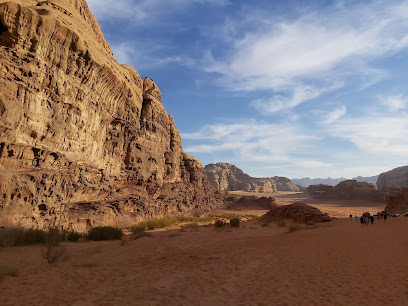
Wadi Rum Visitor Center
Explore Wadi Rum Visitor Center – Your gateway to breathtaking landscapes, rich Bedouin culture, and unforgettable desert adventures.
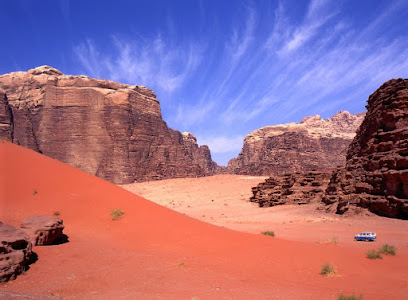
Memories Aicha Luxury Camp
Discover the allure of Wadi Rum at Memories Aicha Luxury Camp, where luxury meets adventure in the heart of the desert.

Wadi Rum Nomads
Discover the enchanting beauty of Wadi Rum with Wadi Rum Nomads, your gateway to Jordan's majestic desert landscapes and rich Bedouin culture.
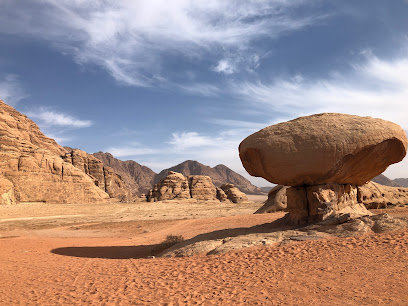
Wadi Rum Quiet Village Camp
Discover the enchanting beauty of Wadi Rum at the Quiet Village Camp, where adventure meets serene desert tranquility in Jordan.
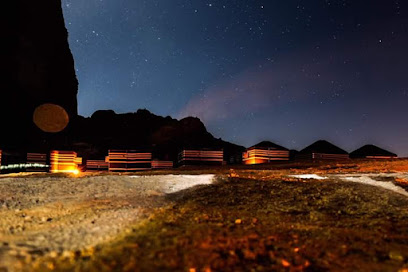
Wadi Rum Fire Camp
Experience the magic of the Jordanian desert at Wadi Rum Fire Camp, where adventure meets the serenity of nature under a starlit sky.
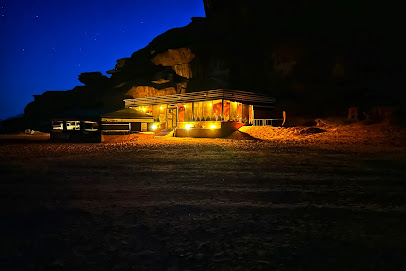
Wadi Rum Tours ( Saleh's Safari Camp)
Explore the stunning Wadi Rum with Saleh's Safari Camp, where adventure meets Bedouin culture in Jordan's breathtaking desert landscape.
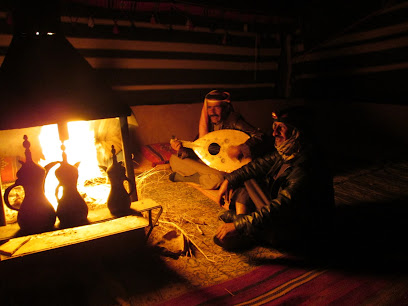
Wild Wadi Rum Tours
Explore the breathtaking landscapes and rich Bedouin culture of Wadi Rum with Wild Wadi Rum Tours, Jordan's premier desert adventure experience.
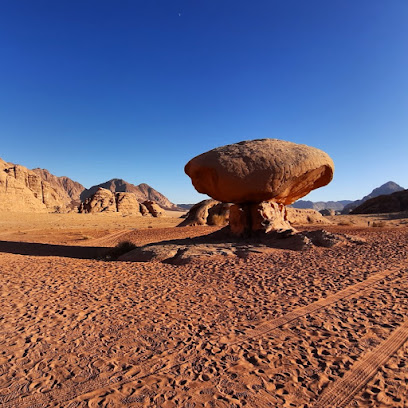
Wadi Rum Candles Camp
Discover the enchanting beauty of Wadi Rum at Candles Camp, where adventure meets tranquility in the heart of the desert.
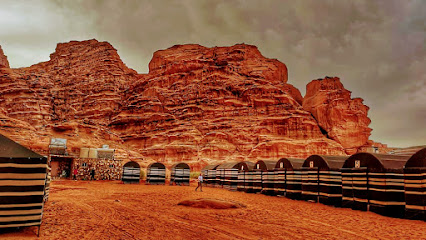
Wadi Rum Camel
Discover the enchanting Wadi Rum Camel experience, where breathtaking desert landscapes and rich Bedouin culture come together for an unforgettable adventure.

Wadi Rum Bedouin Camp
Discover the enchanting beauty of Wadi Rum while enjoying authentic Bedouin hospitality and adventure in the heart of the Jordanian desert.
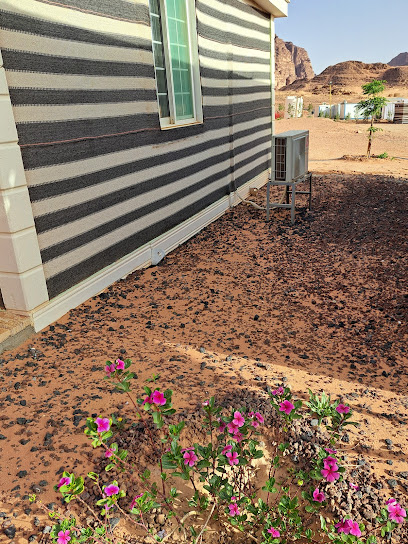
Joy Of Life Wadi Rum
Experience the magic of Wadi Rum at Joy of Life Camp, where adventure meets tranquil desert beauty.
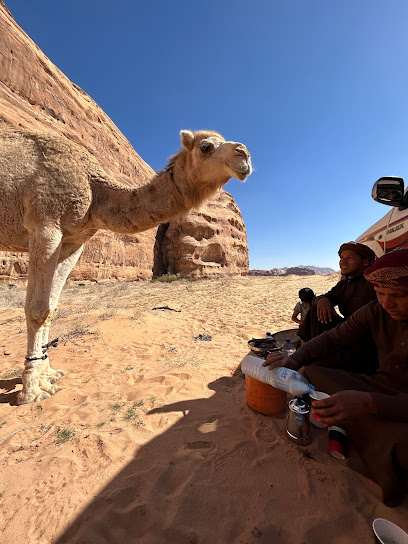
Wadi Rum Desert
Discover the breathtaking landscapes of Wadi Rum Desert, a UNESCO World Heritage site perfect for adventure and tranquility in Jordan.
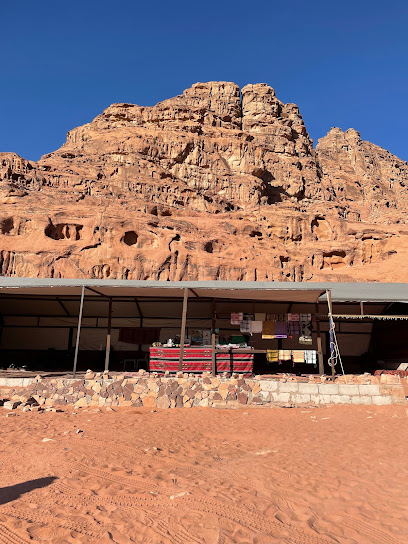
Wadi Rum Desert Adventures
Discover the breathtaking landscapes and rich culture of Wadi Rum Desert Adventures, a unique desert getaway in the heart of Jordan.
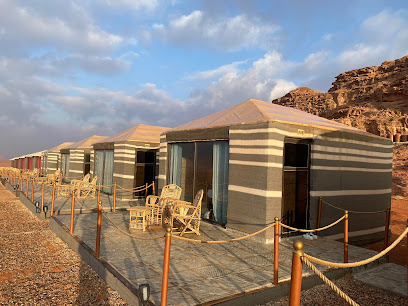
Wadi Rum Magic Nature Camp
Discover the serene beauty and thrilling adventures at Wadi Rum Magic Nature Camp, where desert landscapes and Bedouin hospitality create an unforgettable experience.
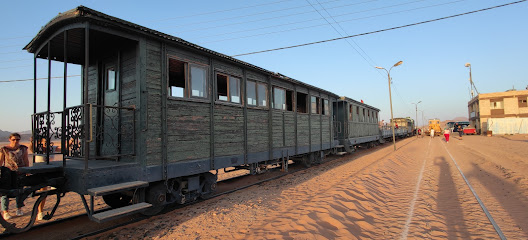
Unmissable attractions to see
Timna Park
Experience the breathtaking landscapes, ancient history, and outdoor adventures at Timna Park, a national treasure in the heart of Israel's Negev Desert.
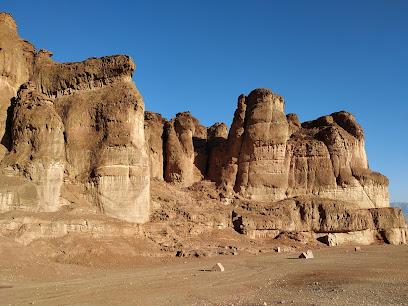
Berenice Beach Club / شاطئ ومنتجع برنيس العقبه
Experience the vibrant atmosphere and stunning beauty of Berenice Beach Club in Aqaba, where relaxation meets adventure by the Red Sea.
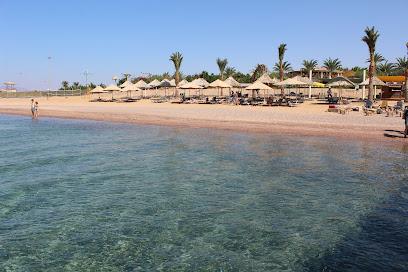
Wadi Rum Visitor Center
Explore the enchanting beauty of Wadi Rum at the Visitor Center, your gateway to Jordan's desert wonders and Bedouin culture.
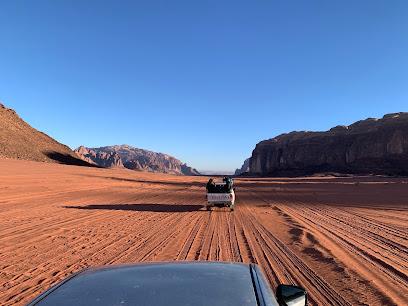
Camel Ranch- Eilat
Experience the magic of the desert at Camel Ranch in Eilat, where adventure meets cultural heritage in breathtaking surroundings.
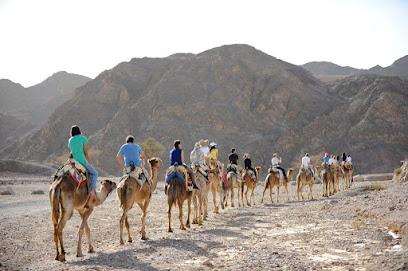
Ayla Oasis
Experience the luxury of Ayla Oasis in Aqaba, where stunning landscapes, gourmet dining, and endless activities await every traveler.
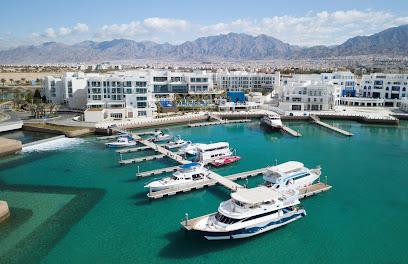
مطل الموجب Moujib Panorama
Experience stunning landscapes at Moujib Panorama, a must-visit tourist attraction in Jordan offering breathtaking views of Wadi Musa and Petra.
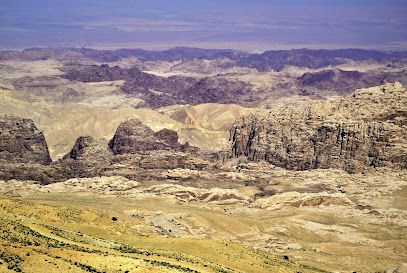
מועדון צלילה אקווה סטאר באילת, קורסי צלילה באילת - Aqua Star
Explore the vibrant underwater world of Eilat with Aqua Star, your premier SCUBA tour agency for unforgettable diving adventures.

Jebel Kharaz
Explore Jebel Kharaz: A stunning natural attraction in Al-Quwayrah, offering breathtaking views, adventure, and a glimpse into Bedouin culture.
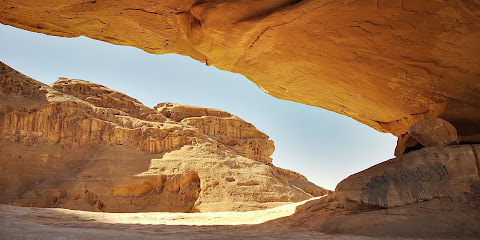
Lawrence’s Spring granite-sandstone contact
Explore Lawrence's Spring in Wadi Rum - a stunning natural oasis steeped in history and surrounded by breathtaking desert landscapes.
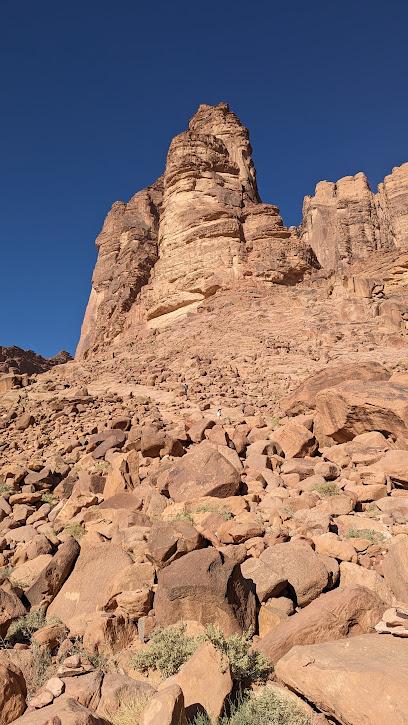
Aqaba Marine Reserve
Discover the stunning marine life and pristine beauty of Aqaba Marine Reserve, a must-visit destination along the Red Sea's breathtaking coastline.
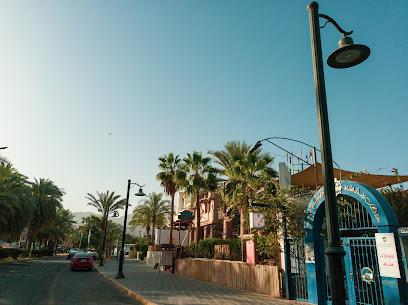
Seven Sisters Diving Site
Experience the vibrant marine life and stunning coral reefs at the Seven Sisters Diving Site in Aqaba, an unforgettable diving destination in Jordan.

Lawrence’s House
Discover the rich history of Wadi Rum at Lawrence's House, where the desert's beauty meets legendary tales of T.E. Lawrence.
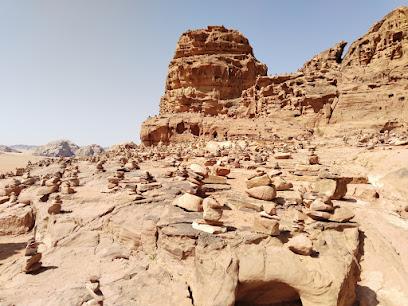
Aqaba Museum
Explore the depths of Jordan's history at the Aqaba Museum, a treasure trove of archaeological wonders and cultural insights.
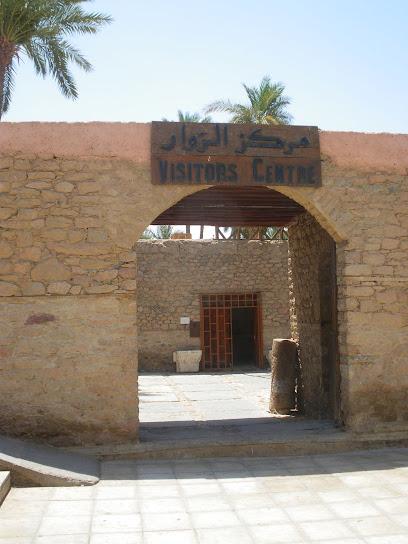
Cedar Pride
Discover the underwater treasures of Cedar Pride in Aqaba, a premier diving destination with stunning marine life and a historic shipwreck.

Ahla Diving Club PADI 5 STAR IDC
Discover the underwater wonders of Eilat with Ahla Diving Club, a PADI 5 Star IDC center offering unforgettable diving experiences for all levels.
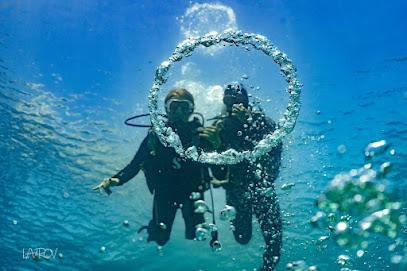
Essential places to dine
Al Wadi Restaurant
Discover authentic Jordanian cuisine at Al Wadi Restaurant in Wadi Musa – a culinary treasure near Petra.
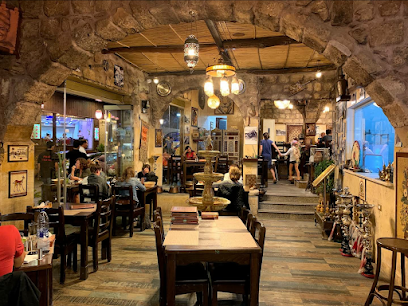
Reem Beladi Restaurant
Experience authentic Jordanian cuisine at Reem Beladi Restaurant in Wadi Musa - a culinary delight near Petra's ancient wonders.
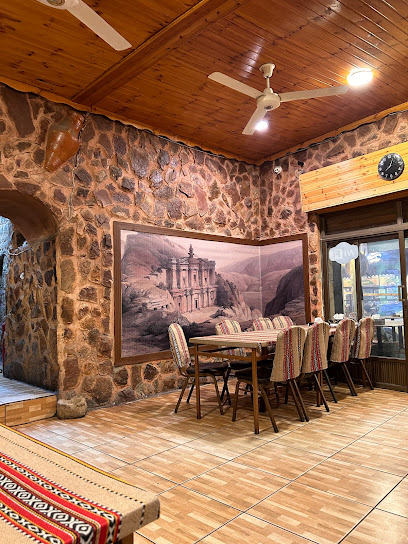
Beit Al-Barakah restaurant
Discover the rich flavors of Jordan at Beit Al-Barakah Restaurant in Wadi Musa—your gateway to an authentic dining experience amidst stunning landscapes.
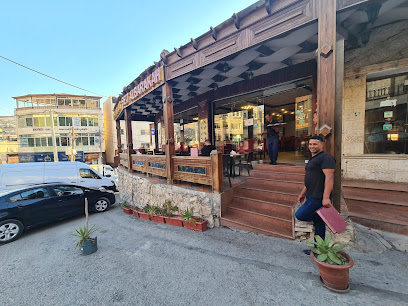
Zawaya restaurant
Experience authentic Jordanian cuisine at Zawaya Restaurant in Wadi Musa - where tradition meets flavor in every dish.
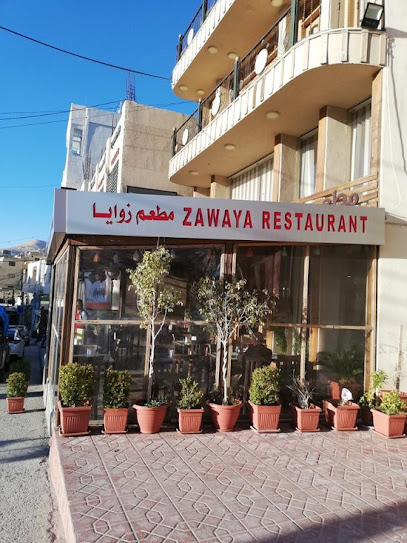
Sajiat Al janoob
Discover authentic Jordanian cuisine at Sajiat Al Janoob in Wadi Musa – where tradition meets taste.
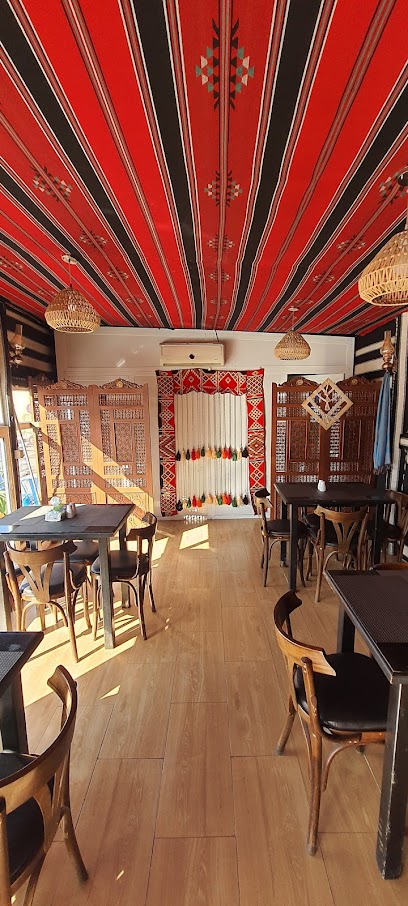
Memories Aicha Luxury Camp
Discover luxury camping at Memories Aicha Luxury Camp in Wadi Rum - where comfort meets breathtaking desert landscapes.

Mirwas Cafe and Restaurant
Experience culinary excellence at Mirwas Cafe and Restaurant, offering a blend of Middle Eastern flavors and international dishes by the scenic Royal Yacht Club.
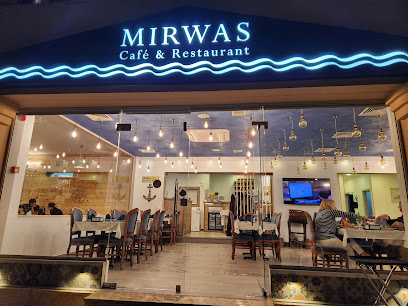
Lawrence’s Spring
Explore Lawrence’s Spring in Wadi Rum Village - A tranquil oasis steeped in history amidst stunning desert landscapes.
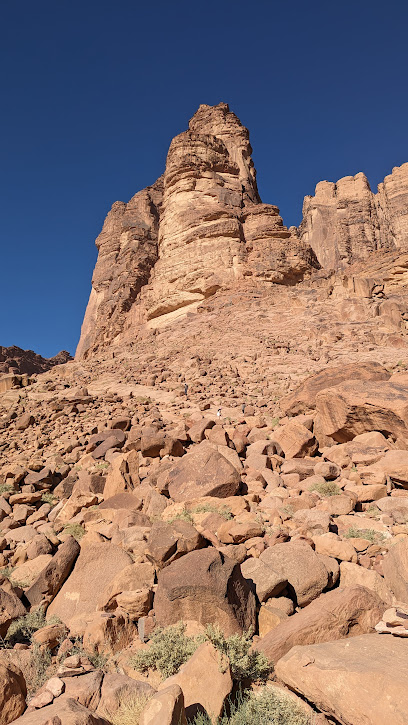
The Cave Bar
Discover The Cave Bar in Wadi Musa: Enjoy exquisite drinks in a breathtaking cave setting after exploring Petra's ancient wonders.
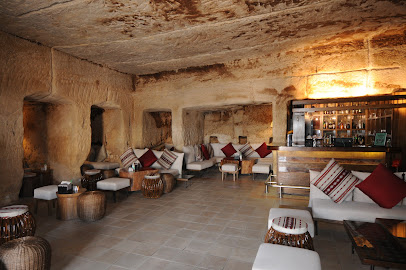
Rum Castle Restaurant
Experience authentic Jordanian cuisine at Rum Castle Restaurant in Wadi Rum Village - where flavor meets breathtaking desert views.
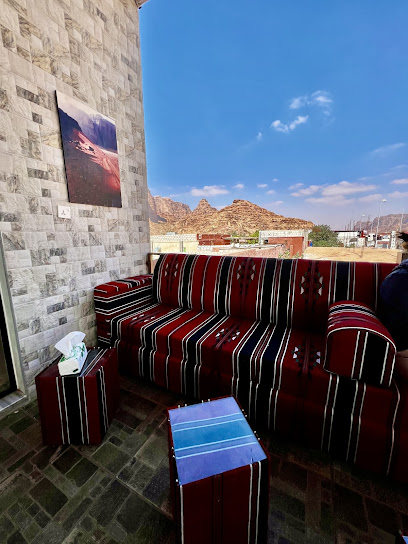
The Basin Restaurant
Experience authentic Jordanian flavors at The Basin Restaurant in Petra while enjoying breathtaking views of Wadi Musa's stunning landscapes.
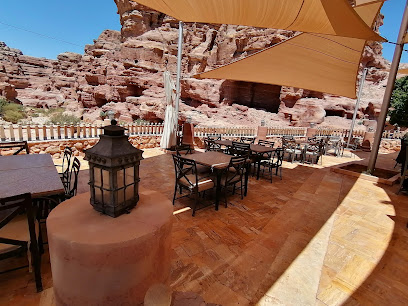
Desert Magic Camp & Resort
Discover luxury amidst the breathtaking landscapes of Wadi Rum at Desert Magic Camp & Resort - where adventure meets comfort.
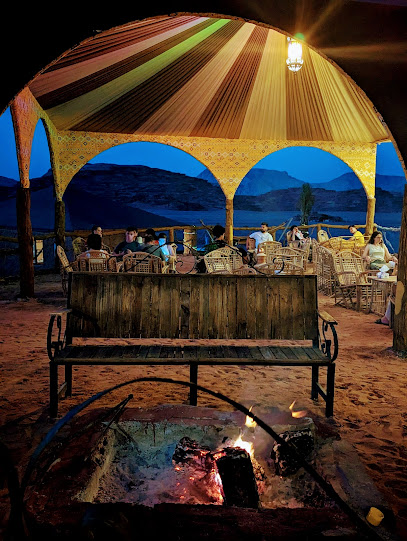
Wadi Rum Fire Camp
Experience authentic Bedouin hospitality at Wadi Rum Fire Camp amidst Jordan's stunning desert landscape.
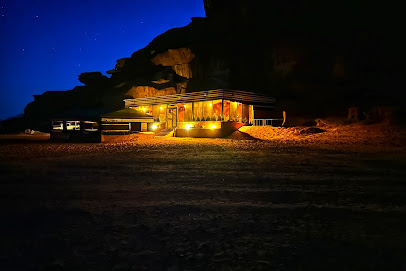
Beyond Wadi Rum Camp
Discover the charm of Wadi Rum at Beyond Wadi Rum Camp - where hospitality meets breathtaking desert landscapes.
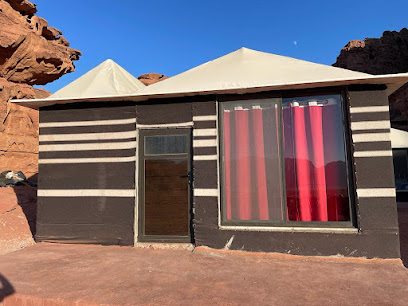
Wadi Rum Night Luxury Camp
Discover luxury camping under starlit skies at Wadi Rum Night Luxury Camp, where adventure meets serenity in Jordan's breathtaking desert landscape.
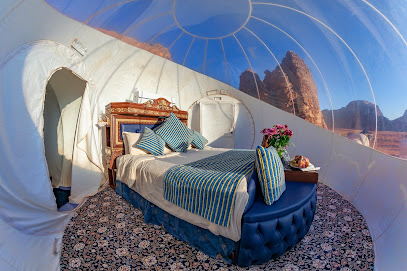
Markets, malls and hidden boutiques
Mecca Mall
Explore the dynamic shopping and entertainment experience at Mecca Mall in Amman, Jordan's premier shopping destination for locals and tourists alike.
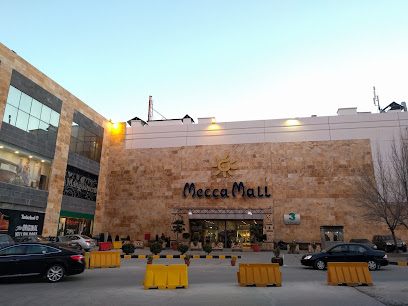
Shweikh Mall
Discover an exciting shopping haven at Shweikh Mall in Aqaba, featuring diverse stores, dining, and entertainment for an unforgettable experience.
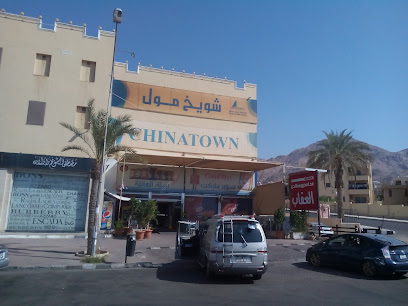
Wadi Rum Visitor Center
Discover the wonders of Wadi Rum at the Visitor Center, your essential stop for exploration, information, and unforgettable desert adventures.
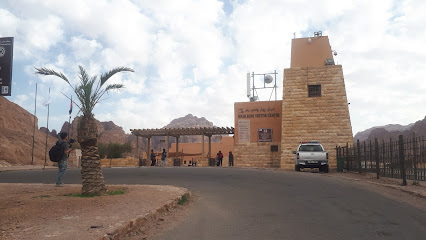
Midway CASTLE
Midway CASTLE: A culinary gem on Desert Highway, offering delicious food, unique shopping, and a glimpse into Jordanian culture.
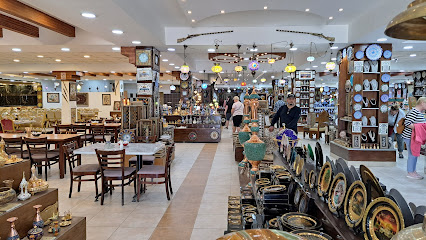
Town Season Hotel
Discover the charm of Town Season Hotel, the boutique retreat in Wadi Musa, perfectly situated for exploring the wonders of Petra.
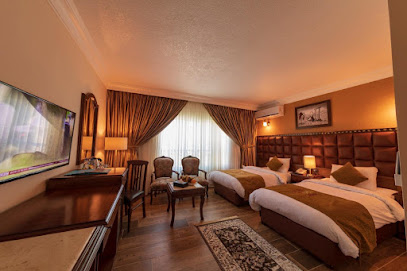
The Cave Bar
Discover the enchanting Cave Bar in Wadi Musa, a unique nightlife destination set within a natural cave, perfect for drinks and relaxation after exploring Petra.
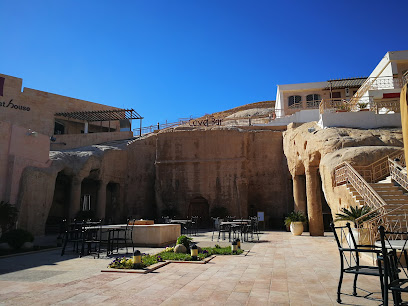
The New Jerusalem Resthouse
Discover authentic Jordanian souvenirs at The New Jerusalem Resthouse, a cultural gem in Hasa, perfect for unique gifts and keepsakes.
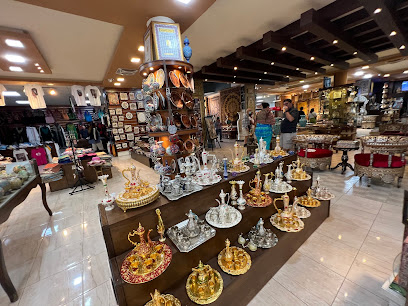
Petra View Shop
Explore the vibrant Petra View Shop in Rajif, where unique Jordanian souvenirs and local handicrafts await every traveler.
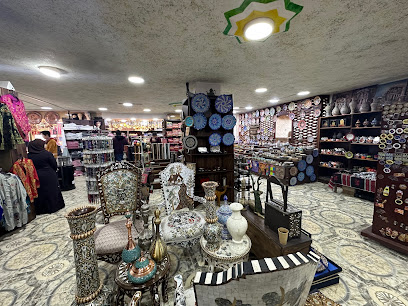
Petra Corner Hotel
Unwind in comfort at Petra Corner Hotel, your gateway to the wonders of Petra and the stunning landscapes of Wadi Rum.

Rum Magic Nights
Discover the allure of Wadi Rum with comfort and adventure at Rum Magic Nights, a top hotel for tourists seeking a unique desert experience.

Jordan Craft Center
Explore the vibrant Jordan Craft Center, where traditional craftsmanship meets modern artistry, offering unique souvenirs and cultural experiences.
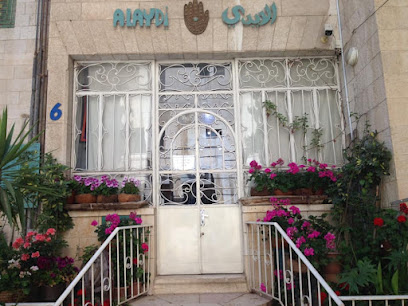
Wadi Rum space village Luxury camp
Discover the enchanting beauty of Wadi Rum while enjoying luxurious accommodations and unforgettable desert adventures at Wadi Rum Space Village Luxury Camp.
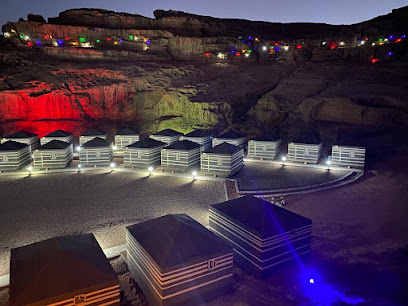
TREKS ️ Outdoor Sports
Explore Jordan's breathtaking landscapes with TREKS - your ultimate destination for outdoor sports gear and adventure planning.
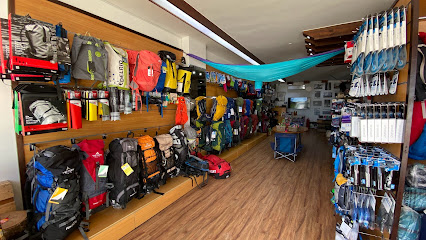
Petra Boutique Hotel
Experience unrivaled comfort and luxury at Petra Boutique Hotel, just steps from the ancient city of Petra in Wadi Musa, Jordan.
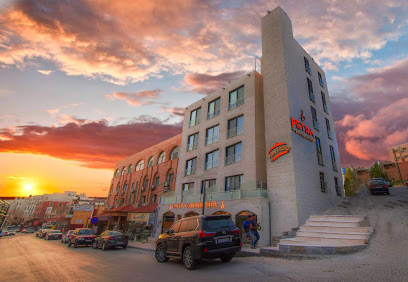
Black Iris Handicrafts
Discover authentic Jordanian crafts and beauty products at Black Iris Handicrafts in Naour, a must-visit shopping destination for tourists.
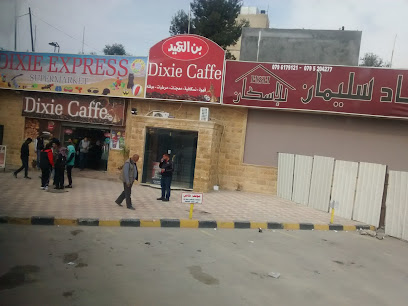
Essential bars & hidden hideouts
Wadi Rum Protected Area
Discover the breathtaking landscapes and rich Bedouin heritage of Wadi Rum Protected Area, a stunning desert oasis in Jordan.
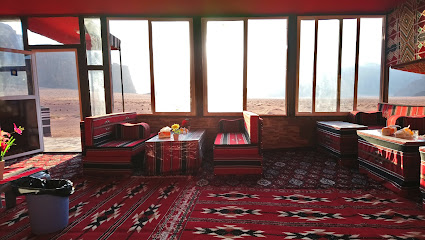
Luxury Rum Magic
Experience the magic of adventure and culture at Luxury Rum Magic, a children's camp in the enchanting Wadi Rum desert, perfect for family fun.
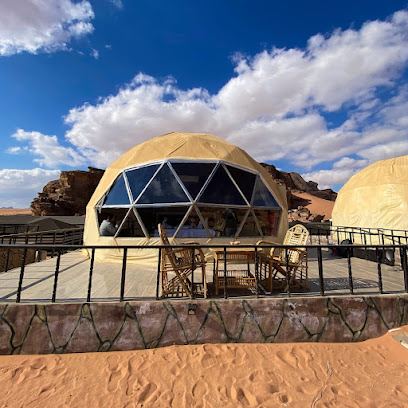
Dubliners
Discover Dubliners, an authentic Irish pub in Amman, serving hearty meals and vibrant music in a warm atmosphere.
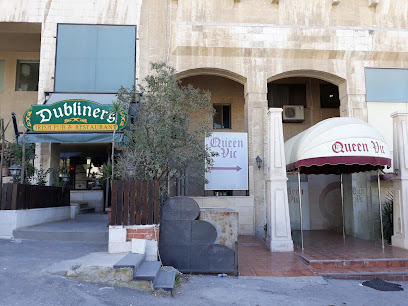
Rum Oasis Luxury camp
Discover the breathtaking beauty and tranquility of Wadi Rum at Rum Oasis Luxury Camp, where adventure meets luxury in Jordan's mesmerizing desert landscape.
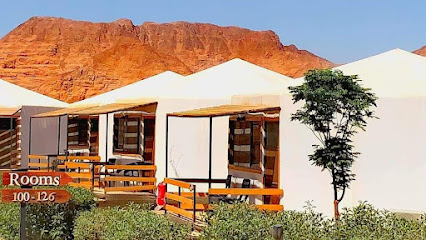
Murphy's - House of Rock
Discover the vibrant atmosphere of Murphy's - House of Rock, Amman's premier pub blending live music, delicious food, and a beautiful garden setting.
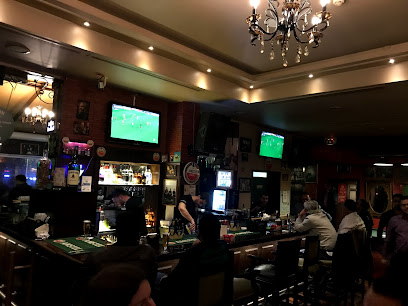
The Cave Bar
Experience the charm of Petra at The Cave Bar, a unique cave setting offering drinks and delightful meals in Wadi Musa.
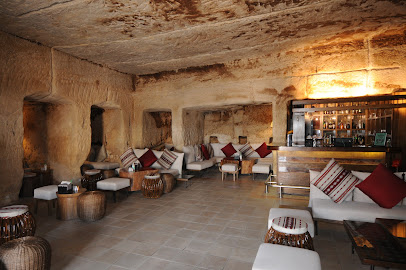
Rum Castle Restaurant
Experience the authentic tastes of Wadi Rum at Rum Castle Restaurant, where succulent chicken dishes meet stunning desert views.
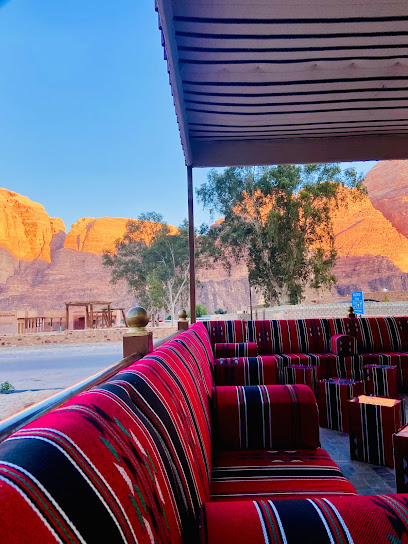
The Basin Restaurant
Experience authentic Jordanian cuisine at The Basin Restaurant, a scenic spot in Petra that delights with local flavors and breathtaking views.
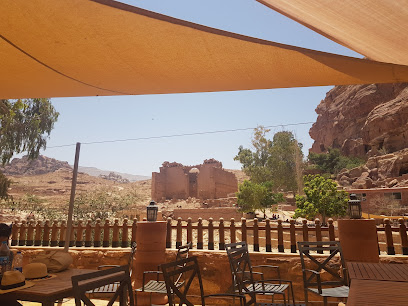
Wadi Rum Dream Camp
Discover the enchanting Wadi Rum Dream Camp, where Bedouin culture meets stunning desert landscapes in Jordan's magical wilderness.
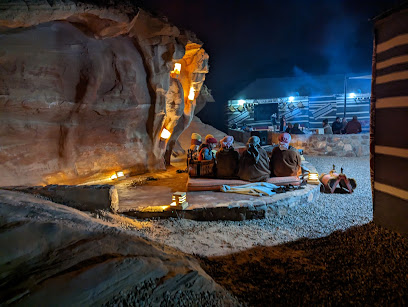
Wadi Rum Night Luxury Camp
Discover the enchanting beauty of Wadi Rum at Night Luxury Camp, where desert adventure meets opulent comfort and stunning landscapes.
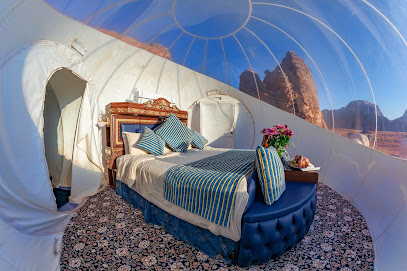
Kilkenny Bar
Discover Kilkenny Bar in Wadi Musa for a lively night out, featuring a diverse drink menu and a warm, welcoming atmosphere perfect for unwinding.
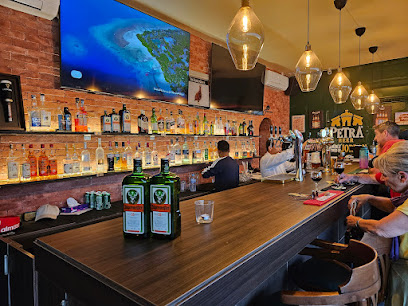
Wadi Rum Rest House
Discover the enchanting beauty of Wadi Rum while enjoying comfortable accommodations at Wadi Rum Rest House, your gateway to desert adventures.
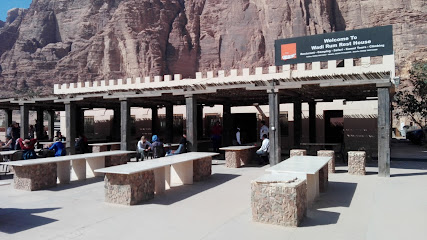
Enjoy Desert Luxury Camp
Discover the magic of the Jordanian desert at Enjoy Desert Luxury Camp, where luxury meets nature in Wadi Rum.
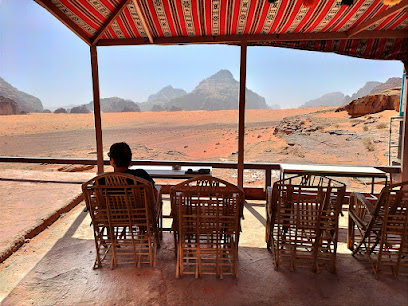
Enjoy rum Resturant
Savor the flavors of Wadi Rum at the cozy Enjoy Rum Restaurant, where traditional dishes meet Western favorites in an inviting atmosphere.
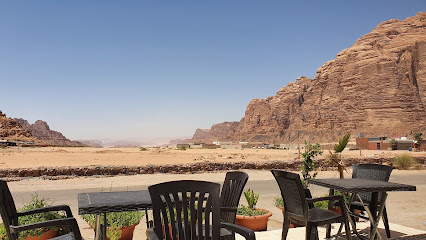
Local Phrases
-
- HelloMarhaba
[mar-ha-ba] - GoodbyeMa'a as-salama
[ma-a as-sa-la-ma] - YesNa'am
[na-am] - NoLa
[la] - Please/You're welcomeMin fadlak/afwan
[min fad-lak/af-wan] - Thank youShukran
[shuk-ran] - Excuse me/SorryAfuwan
[af-wan] - How are you?Kif halak?
[kif ha-lak] - Fine. And you?Bi-khayr. Wa ant?
[bi-khayr. wa ant] - Do you speak English?Bititkallem inglizi?
[bi-tit-kal-lem in-gli-zi] - I don't understandAna mish fahem
[a-na mish fa-hem]
- HelloMarhaba
-
- I'd like to see the menu, pleaseBiddi ara al-qimma, min fadlak
[bid-di a-ra al-qim-ma, min fad-lak] - I don't eat meatAna mish ba'kul lahme
[a-na mish ba-kul lah-me] - Cheers!Sahtain!
[sahtain] - I would like to pay, pleaseBiddi as-sifr, min fadlak
[bid-di as-sif-r, min fad-lak]
- I'd like to see the menu, pleaseBiddi ara al-qimma, min fadlak
-
- Help!Musaidi!
[mu-sai-di] - Go away!Irja'!
[ir-ja] - Call the Police!Itlob al-shurta!
[it-lob al-shur-ta] - Call a doctor!Itlob tabib!
[it-lob ta-bib] - I'm lostDha'ait
[dha-a-it] - I'm illAna mareed
[a-na ma-reed]
- Help!Musaidi!
-
- I'd like to buy...Biddi ashtar...
[bid-di ash-tar] - I'm just lookingAna bakhidr bas
[a-na ba-khidr bas] - How much is it?Kam huwa thamanuh?
[kam hu-wa tha-ma-nuh] - That's too expensiveHadha ghali jiddan
[ha-dha gha-li jid-dan] - Can you lower the price?Momken taqil as-si'r?
[mom-ken ta-qil as-seer]
- I'd like to buy...Biddi ashtar...
-
- What time is it?Kam as-sa'a?
[kam as-sa-a] - It's one o'clockHuwa al-wahid
[hu-wa al-wa-hid] - Half past (10)Nisf al-'ashara
[nisf al-a-sha-ra] - MorningSabaah
[sa-baah] - AfternoonDhuhr
[dhuh-r] - EveningMasaa
[ma-saa] - YesterdayAms
[ams] - TodayLyawm
[lya-wm] - TomorrowGhadan
[g-ha-dan] - 1Waahid
[wa-hid] - 2Ithnaan
[ith-naan] - 3Thalatha
[tha-la-tha] - 4Arba'a
[ar-ba-a] - 5Khamsa
[kham-sa] - 6Sitta
[sit-ta] - 7Saba'a
[sa-ba-a] - 8Thamania
[tha-ma-ni-a] - 9Tis'a
[tis-a] - 10Ashara
[a-sha-ra]
- What time is it?Kam as-sa'a?
-
- Where's a/the...?Wayn al...
[wayn al] - What's the address?Shu huwa al-`unwan?
[shu hu-wa al-u-nwan] - Can you show me (on the map)?Momken turiini (ala al-khariTah)?
[mom-ken tu-ri-ni (ala al-kha-ri-ta)] - When's the next (bus)?Mata huwa at-taariikh al-qadim?
[ma-ta hu-wa at-ta-riikh al-qa-dim] - A ticket (to ....)Taqiit (ila ....)
[ta-qee-t (i-la)]
- Where's a/the...?Wayn al...
History of Wadi Rum
-
Wadi Rum has been inhabited since prehistoric times, with evidence of human activity dating back as far as 12,000 years. The region is rich with rock inscriptions and petroglyphs left by the Thamudic, Nabataean, and other ancient civilizations. These carvings and drawings provide a glimpse into the lives, beliefs, and languages of the early inhabitants.
-
In the 4th century BCE, the Nabataeans, an ancient Arab people, established a presence in Wadi Rum. Known for their advanced architectural and hydraulic techniques, the Nabataeans left behind intricate water channels and rock-cut structures. Their influence in Wadi Rum is a testament to their engineering prowess and ability to thrive in harsh desert conditions.
-
Wadi Rum gained international fame during the Arab Revolt of 1917-1918, largely due to the exploits of T.E. Lawrence, also known as Lawrence of Arabia. Lawrence used the rugged terrain of Wadi Rum as a base for guerrilla warfare against the Ottoman Empire. His book 'Seven Pillars of Wisdom' vividly describes the landscape and the strategic significance of Wadi Rum in the revolt.
-
The Bedouin tribes have called Wadi Rum home for centuries. Their nomadic lifestyle, traditions, and deep knowledge of the desert have shaped the cultural identity of the region. The Bedouins' hospitality, craftsmanship, and storytelling continue to be a vital part of Wadi Rum's cultural heritage, offering visitors a unique glimpse into their way of life.
-
In the 20th century, Wadi Rum began to attract explorers, climbers, and eventually tourists. Its dramatic landscapes, characterized by towering sandstone mountains and vast desert plains, have made it a popular destination for adventure tourism. The establishment of Wadi Rum as a protected area in 1998 further cemented its status as a natural and cultural treasure.
-
Wadi Rum's otherworldly landscapes have made it a favorite filming location for Hollywood movies. Most notably, it served as the backdrop for scenes in 'Lawrence of Arabia' (1962) and 'The Martian' (2015). These films have introduced the stunning scenery of Wadi Rum to a global audience, boosting its popularity as a travel destination.
Wadi Rum Essentials
-
Wadi Rum is located in southern Jordan, approximately 60 kilometers east of Aqaba. The nearest international airport is King Hussein International Airport in Aqaba. From Aqaba, you can take a taxi or arrange a transfer with a tour company. The journey typically takes around 1 hour by road. Alternatively, you can fly into Queen Alia International Airport in Amman and then drive or take a bus to Wadi Rum, which is about a 4-hour drive.
-
Within Wadi Rum, the primary mode of transportation is 4x4 vehicles, as the terrain is mostly desert. Many tour operators offer guided 4x4 tours, camel rides, and hiking excursions. Renting a car is an option if you prefer to explore on your own, but it is advisable to have a vehicle suitable for off-road driving. Public buses and shared taxis (service taxis) connect Wadi Rum with other major cities in Jordan, including Aqaba and Amman.
-
The official currency in Jordan is the Jordanian Dinar (JOD). Credit cards are accepted in some hotels and larger tourist establishments, but it is advisable to carry cash, especially for smaller purchases and when dealing with local vendors. ATMs are available in Aqaba and other major cities, so it's wise to withdraw sufficient cash before heading to Wadi Rum.
-
Wadi Rum is generally a safe destination for tourists. However, like any travel destination, it is advisable to take standard precautions. Avoid walking alone at night and keep an eye on your belongings in crowded places. There are no specific high-crime areas targeting tourists in Wadi Rum, but it is always best to stay vigilant and aware of your surroundings.
-
In case of emergency, dial 911 for immediate assistance. Medical facilities are limited within Wadi Rum, so it is recommended to have travel insurance that covers medical emergencies. For minor health issues, there are pharmacies in Aqaba where you can purchase over-the-counter medications. It is also advisable to carry a basic first aid kit with you while exploring the desert.
-
Fashion: Do dress modestly, especially when visiting local villages and interacting with Bedouin communities. Avoid wearing revealing clothing. Religion: Do respect local customs and traditions. Remove your shoes before entering a tent or home and dress conservatively when visiting religious sites. Public Transport: Do be respectful and give up your seat to elderly passengers. Don't eat or drink on public transport. Greetings: Do greet people with a handshake or a nod. Bedouins value hospitality and politeness. Eating & Drinking: Do try local delicacies and accept food offerings graciously. Don't refuse hospitality, as it is considered impolite.
-
To experience Wadi Rum like a local, consider staying in a Bedouin camp where you can enjoy traditional meals and learn about Bedouin culture and traditions. Engage with local guides, as they are often knowledgeable about the area's history and natural wonders. Don't miss the opportunity to stargaze at night, as Wadi Rum is known for its clear skies and minimal light pollution. For a unique experience, try a camel ride or a hot air balloon ride over the desert.
Trending Landmark in Wadi Rum
-
Wadi Rum Protected Area
-
Wadi Rum Visitor Center
-
Memories Aicha Luxury Camp
-
Wadi Rum Nomads
-
Wadi Rum Quiet Village Camp
-
Wadi Rum Fire Camp
-
Wadi Rum Tours ( Saleh's Safari Camp)
-
Wild Wadi Rum Tours
-
Wadi Rum Candles Camp
-
Wadi Rum Camel
-
Wadi Rum Bedouin Camp
-
Joy Of Life Wadi Rum
-
Wadi Rum Desert
-
Wadi Rum Desert Adventures
-
Wadi Rum Magic Nature Camp
Nearby Cities to Wadi Rum
-
Things To Do in Aqaba
-
Things To Do in Eilat
-
Things To Do in Ma'an
-
Things To Do in Petra
-
Things To Do in Dana
-
Things To Do in Tafilah
-
Things To Do in Dahab
-
Things To Do in Tabuk
-
Things To Do in Kerak
-
Things To Do in Masada
-
Things To Do in Beersheba
-
Things To Do in Sharm El Sheikh
-
Things To Do in Ein Gedi
-
Things To Do in Dead Sea
-
Things To Do in Bethlehem












